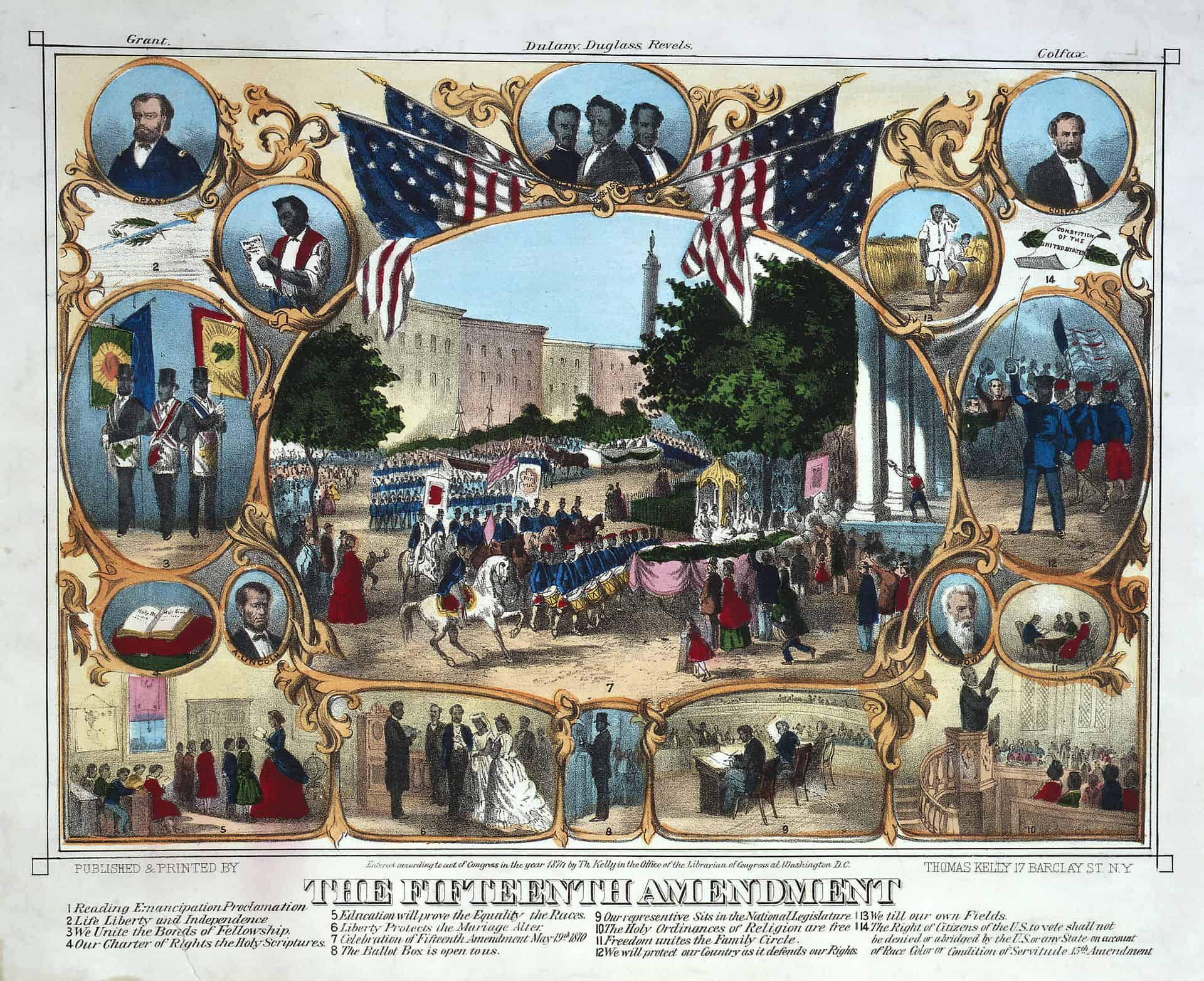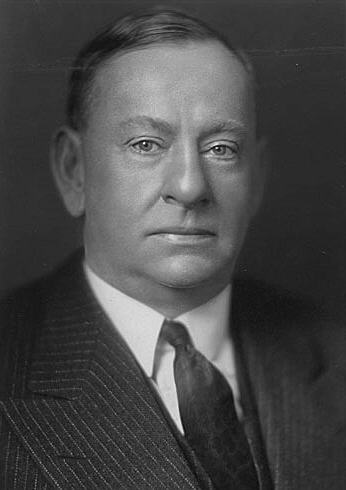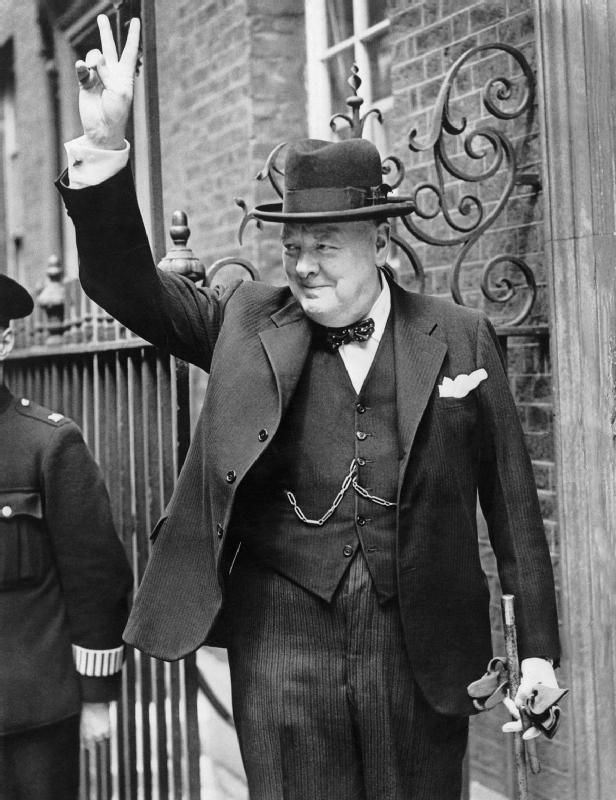Forgetting Flaws and Fabricating Fantasies: The Democrats’ Revisionist History
I am not a fan of the Republican Party. I’m not here as a Republican shill. I don’t like them. I’m not a member of the Republican Party. They’ve lost their way. But let’s get history right.
—Glenn Beck1—
An expanded version of this article is available here.
Part 6 is available here.
Links to all the articles in this series are available here.
Last week we had the privilege of discovering the contributions blacks made to the cause of liberty in the American Revolution and during Reconstruction.2 Our journey was prompted by these, the first two items on the list we began compiling of facts from history that Democrats have hidden or distorted.
Historical Truths Democrats Have Successfully Concealed
First, many black soldiers fought alongside whites in the Revolutionary War.3 Their contributions to the cause of liberty and American independence truly were incalculable.
Second, all of the first black Members of Congress were Republicans.4 They courageously faced threats and fierce opposition from those who never wanted to free the slaves in the first place, many of whom were Democrats.
We now will add nine more items to the list. As you read, please remember that our primary goal isn’t to be pro-Republican or even anti-Democrat, but to learn the truth about history. We simply want to ask, “What happened?” Are you ready?
Third, the Thirteenth Amendment to the Constitution officially ended slavery in the United States. The US Senate passed it on April 8, 1864, and the US House of Representatives passed it on January 31, 1865.5 One hundred eighteen out of 118 Republicans—100 percent—voted for the amendment, but a mere 19 of 82 Democrats—23 percent—voted for it.6,7 “Among Democrats, 63 percent of senators and 78 percent of House members voted: ‘No.’”8
Fourth, the 14th Amendment specifies that all Americans will have equal protection under the law. “In 1866 94 percent of GOP senators and 96 percent of GOP House members approved” the measure. Every single Democrat in Congress voted no.9
Fifth, the 15th Amendment guarantees the right to vote for every American, regardless of “race, color, or previous condition of servitude.”10 At the time Congress passed it, there were a total of 56 congressional Democrats, and not one of them voted for it.11 The 15th Amendment would go on to be ratified on February 3, 1870.12

This 1870 print was made to recognize and celebrate the ratification of the Fifteenth Amendment to the US Constitution.
Sixth, the Democrat platform of 1860 “continued to campaign for immigrant rights and slavery. The 1864 platform denounced the Civil War and called for negotiations with the Confederacy. The 1868 platform denounced ‘negro supremacy’.”13 Blacks weren’t the exclusive targets of Democrat racism, but the Democrats still continued to direct racist policies against them.14
Seventh, Democrats started the Ku Klux Klan (KKK):
According to Larry Elder,
In 1872 congressional investigations, Democrats admitted beginning the Klan as an effort to stop the spread of the Republican Party and to re-establish Democratic control in Southern states. As PBS’ “American Experience” notes, “In outright defiance of the Republican-led federal government, Southern Democrats formed organizations that violently intimidated blacks and Republicans who tried to win political power. The most prominent of these, the Ku Klux Klan, was formed in Pulaski, Tenn., in 1865.” Blacks, who were all Republican at that time, became the primary targets of violence.15
Eighth, the election of 1876 sent Republican Rutherford B. Hayes to the White House, but only after a compromise was reached that gave him just enough electoral votes to be elected. The results of the election were mired in controversy, although Democrat Samuel J. Tilden had, without question, won the popular vote.16 A compromise was reached. Democrats allowed Hayes to become president in exchange for the removal of federal troops from the South. Officially, Reconstruction would end. This meant “the national government would no longer intervene in southern affairs. This would permit the imposition of racial segregation and the disfranchisement of black voters.”17
The compromise of 1877 that put Rutherford B. Hayes in the White House also ended the era of Reconstruction after the Civil War. Federal Troops were withdrawn from the South, paving the way for “the imposition of racial segregation and the disfranchisement of black voters.”
—Digital History—
Ninth, in the presidential election of 1880, the Democrats nominated Winfield Scott Hancock, who had been a Union general during the Civil War. He’d emerged a war hero, but significantly, “Hancock was a Democrat who fought to preserve the Union but not to end slavery or see Black Americans protected by the United States Constitution.”18 It was a very shrewd move on the part of Democrats. Recognizing this, Republicans distributed a handbill that highlighted the stark differences between the two parties—and that effectively laid out reasons not to vote for the Democratic ticket.
Go here for a larger copy of this publication.
While today some of the language used in the flyer would be considered inappropriate, the points it conveyed resonated with the public.19 In the end, the popular vote was very close, even though the vote in the electoral college was not.20 James A. Garfield was elected.
Tenth, Democrats in the South after the Civil War no longer had the institution of slavery to bring blacks down, so they found other ways. “Jim Crow laws” were widely used for this purpose. Such laws separated whites and blacks. Even though the phrase “separate but equal” was used to describe the social landscape, resources “for African Americans were consistently inferior and underfunded compared to those available to European Americans; sometimes they did not exist at all.” Go here and here to read some examples of Jim Crow laws and to learn about the segregation and oppression they engendered.21
Eleventh, the Ku Klux Klan continued its campaign of intimidation, and no tactic in the KKK’s arsenal was more effective than lynching.22
• Between 1886 and 1968 there were 4,743 lynchings recorded.
• There were 3,446 blacks lynched out of the 4,743 lynchings. That calls [counts] for 72.7% of [the] lynchings.
• Whites accounted for the extra 27.3%.23

Missouri Republican US Representative Leonidas C. Dyer
In the early 1920s, Republicans, led chiefly by Missouri Representative Leonidas C. Dyer, sought to make lynching a federal crime. President Warren G. Harding supported the bill, but unfortunately, southern Democrats in the US Senate repeatedly filibustered it.24
The aftermath of a lynching that took place in the 1920s is pictured here.
This brings us to the early 20th century, and there’s a good bit more to cover. We’ll complete this list next week by highlighting several 20th-century events, personalities, and attitudes. This will by no means become an exhaustive list, but I believe it will become—and already is—an informative one.
Before concluding, I am compelled to make this important point. In recent years Republicans have developed an unfortunate and disappointing track record of campaigning on conservative principles and then, once elected, acquiescing to Democrat pressure without a fight. Voters who put these Republicans in office are rightly angry over this. This is relevant to our discussion because it is clear to many that Democrats still use intimidation and misinformation as vicious weapons. They have enthusiastic allies in the mainstream media, as well. Republicans need to stand up to Democrats unwaveringly and fight for the principles they ran on when they campaigned for office—the way they used to do when they fought against slavery and fought for equality for all Americans! Can you imagine Republicans of the era of history we’ve been highlighting calling their party a “big tent” that welcomes pro-slavery adherents into its ranks? Can you imagine their saying, “Well, I’m personally opposed to slavery, but I believe every person has a right to choose whether or not to become a slaveowner”? This sounds ridiculous because it is! Republicans, rediscover your roots and stand once again on solid ground! Your constituents long for you to do these things!
Can you imagine Republicans of the era of history we’ve been highlighting calling their party a “big tent” that welcomes pro-slavery adherents into its ranks? Can you imagine their saying, “Well, I’m personally opposed to slavery, but I believe every person has a right to choose whether or not to become a slaveowner”?
 Until next week, remember this insightful quote from Winston S. Churchill: “The farther backward you can look, the farther forward you are likely to see.”25 Let’s make sure we look back, and that we do so with clarity of vision.
Until next week, remember this insightful quote from Winston S. Churchill: “The farther backward you can look, the farther forward you are likely to see.”25 Let’s make sure we look back, and that we do so with clarity of vision.
These posts are offered, hopefully, as means to these ends.
Part 8 is available here.
Copyright © 2016 by B. Nathaniel Sullivan. All Rights Reserved.
Top image: The passage of the Thirteenth Amendment in the US House of Representatives is celebrated on January 31, 1865.
Notes:
1http://www.glennbeck.com/2015/04/28/the-real-history-of-the-civil-rights-movement
2https://wordfoundations.com/2016/08/26/the-importance-of-getting-history-right-part-6/
3https://wordfoundations.com/blacks-fought-alongside-whites-in-the-american-revolution/
4https://wordfoundations.com/all-of-the-first-blacks-in-congress-were-republicans/
5https://en.wikipedia.org/wiki/Thirteenth_Amendment_to_the_United_States_Constitution
7http://frederickdouglassrepublican.com/did-you-know/
8http://downtrend.com/robertgehl/democratic-party-has-roots-in-violence-racism-and-bigotry
9http://downtrend.com/robertgehl/democratic-party-has-roots-in-violence-racism-and-bigotry
10https://en.wikipedia.org/wiki/Fifteenth_Amendment_to_the_United_States_Constitution
11http://frederickdouglassrepublican.com/did-you-know/
12https://en.wikipedia.org/wiki/Fifteenth_Amendment_to_the_United_States_Constitution
13http://www.frontpagemag.com/fpm/259235/ban-racist-democratic-party-daniel-greenfield Minor grammatical changes were made for clarity.
14http://www.frontpagemag.com/fpm/259235/ban-racist-democratic-party-daniel-greenfield
15http://www.freerepublic.com/focus/f-news/1523692/posts
16https://en.wikipedia.org/wiki/United_States_presidential_election%2C_1876
17http://www.digitalhistory.uh.edu/disp_textbook.cfm?smtID=2&psid=3109
18http://www.issues4life.org/blast/2012093.html
19http://www.issues4life.org/blast/2012093.html
20http://www.presidency.ucsb.edu/showelection.php?year=1880
21https://en.wikipedia.org/wiki/Jim_Crow_laws
22David Barton, Setting the Record Straight: American History in Black and White, (Aledo, TX: WallBuilder Press, 2004), 115.
23https://prezi.com/kfp9hq7ahdli/kkk-lynching/
24https://en.wikipedia.org/wiki/Dyer_Anti-Lynching_Bill
25https://www.goodreads.com/quotes/tag/history?page=2

